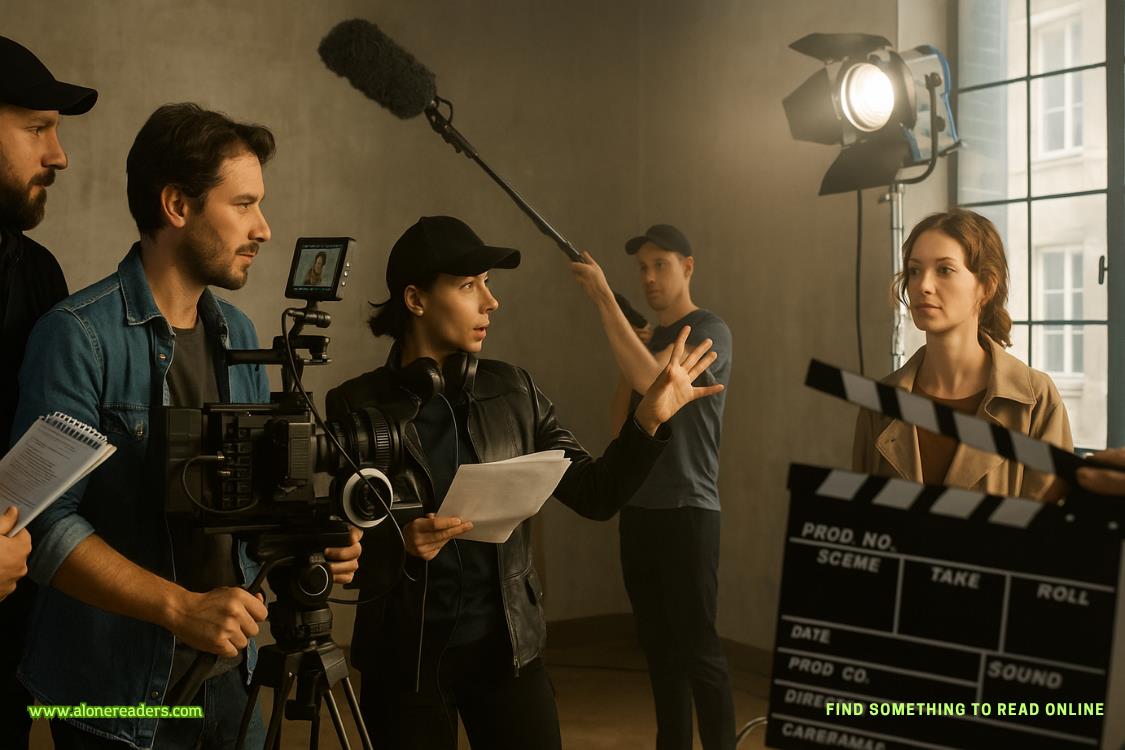Page 5 of A Resistance of Witches
“I wouldn’t know. I didn’t take it.”
Evelyn pressed her lips together like she had something to say but was determined to keep it to herself. She often looked like that, as if she were biting her tongue, trying to hold in something that desperately wanted to come out.Minding my mouth, Lydia once heard her say. As if that made her meaning any less obvious.
They made a strange pair, sitting across from one another at the rickety kitchen table. Evelyn Polk was forty-four and barefaced, with no evident interest in fashion or appearances. Her hair, once dark, had now gone woolly gray and hung in a single plait down her back. Lydia, on the other hand, wore her glossy black hair swept up and rolled in the fashion popular among the other young women of the academy. Her dresswas a deep indigo, and on her lapel, she wore a silver rose entwined with thorns—the emblem of the academy. The brooch had been a gift from Isadora upon Lydia’s graduation.
She finished her tea. Evelyn reached for her cup, but Lydia placed her hand firmly over the top and kept it there. Evelyn made an exasperated sound.
“Mother.”
“What, I’m not allowed to read your tea leaves anymore?”
Lydia left her hand over her cup and said nothing.
“Why? Because it’s nothigh magic? No classes on reading tea leaves at the academy I suppose?”
“No, it’s just none of your business.”
Evelyn looked bruised, and Lydia immediately regretted hurting her feelings. She’d always resented that nothing was a secret from her mother. Every private longing and event of Lydia’s childhood had been spied by Evelyn in the bottom of her teacup, to the point that as an adult, Lydia had developed a strong preference for coffee.
Evelyn began to clear the dishes, leaving Lydia’s teacup behind.
“Mother,” she said again.
Evelyn puttered at the sink, keeping her back turned. “I understand you’ve been busy at the academy, Lydia. I understand you’re a young woman now, and you want your privacy. And I know you’re supposed to present yourself a certain way, being the right hand of thegrand mistress.” The dishes clattered loudly in the bottom of the sink. “But, Lydia Polk, you are still my child, and when you come into my house, I would appreciate it if you wore the face I gave you.”
Lydia was surprised by her mother’s sudden intensity. She considered standing her ground, then thought better of it, and allowed the subtle glamour to fade.
“I thought it was quite tasteful.”
“There’s nothing wrong with the face you’ve got.” Evelyn came closer to get a better look at her daughter. “You’ve got my mother’s cheekbones, I think.”
“As well as her nose,” said Lydia.
“It’s a lovely nose!” Evelyn gave it a tap with her index finger. “I’ll never understand why you hate it so.” She turned back to the dishes in the sink, taking more care now that the tension had dissipated. “I have an idea. Why don’t you stay for supper? I have a little gin if you’re tired of tea. We could stay up, get tipsy, and read each other’s cards. What do you say?”
“I can’t. I have academy business this evening.” Lydia watched Evelyn’s face fall again.
“So late?”
“I’m afraid so.”
“What type of business?”
“Mother, you know I can’t—”
“Is it to do with Project Diana?”
Lydia felt herself go very still.
Damn her, she thought. She never could keep anything secret from Evelyn.
“I don’t know what you mean.” But the lie was somehow worse than saying nothing at all. It fell flat on the floor between them, clumsy and obvious. Lydia retrieved her handbag from the kitchen chair and wrapped her mother in a stiff embrace. “I’ve got to go. I’ll see you next week. All right?”
“Next week. Right.” Evelyn looked deflated.
Lydia kissed her on the cheek. “Goodbye, Mother.”
She made for the door and had scarcely turned her back before the glamour appeared once again, a softer version of her own face, with full pink cheeks and a perfect, upturned nose.
- Sold to the Silver Foxes by Laylah Snow
- My Brother's Best Friends by Natasha L. Black
- The Rancher's Addiction by Lila Fox
- The Biker's Hidden Obsession by Khloe Summers
- Mile High Coach by Mia Mara
- Off-Limits as Puck by Kate Olivia
- Love Off Course by K. Webster
- Desert Sky by Jax Hart
- Their Darkest Needs by Amaya Jax
- Love & Vendettas by Cassie Verano
- Iron Bride by Molly Briar
- The Omega's Bloodline: Part One by Sierra Cassidy
- Forever In Willow Creek by Jade West
- Where the Blacktop Ends by Sofia Jade
- The Crown of Nyx by Audrey Moore
- Deep Feelings & Shallow Graves by Gwendoline Rose







